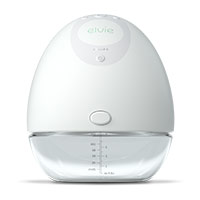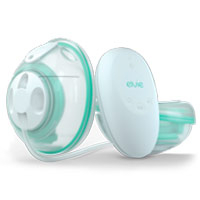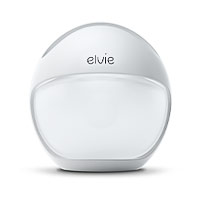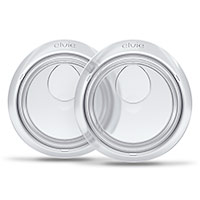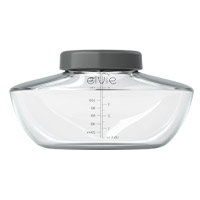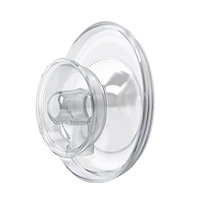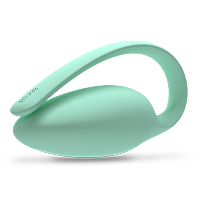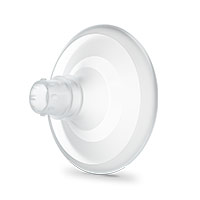Breastfeeding benefits babies' growth, development and overall health. But while babies reap the rewards of their mothers' milk, breastfeeding mothers also need to take care to meet their own nutritional needs.
Although 'self care' often takes a backseat in the postnatal period, good nutrition and lifestyle habits are especially important during this time. And thankfully they don't have to be complicated (because looking after a baby is a demanding business!). Here are some simple principles to follow to feel your best while feeding your baby.
Eat for energy
Breastfeeding burns a lot of energy, so new mothers need more calories (around 300-500 extra per day when exclusively breastfeeding). These should be made up of a good balance of carbohydrates, fats and protein with adequate vitamins and minerals to avoid depletion.
Even though normal meal times can go out of the window when you're up feeding through the night and adjusting to your baby's needs, it's important to keep your own (increased) appetite satisfied. Try to eat little and often - every 3-4 hours - to keep your energy up and your blood sugar levels stable. Long gaps without food can allow sugar cravings to take hold, which can be particularly intense when breastfeeding.
One handed meals
You'll need to learn the art of eating one-handed while you breastfeed, so easy meals are best. Here are some of my go-to's for filling, nutritious meals that keep your energy up. Crucially, they can be eaten with one hand or a spoon.
Porridge - oats, quinoa or amaranth are all high fibre and will give you a slow release of energy to keep you fuller for longer. Add nuts, seeds or a tablespoon of almond butter or tahini, fruit (stewed apples, pears or berries are my favourites) and a tablespoon of coconut oil for some extra fuel. As the weather gets warmer, try bircher muesli or even homemade granola (make a big batch to keep you going for a while).
Avocado and eggs on wholegrain toast. Add some wilted spinach or a handful of watercress for extra iron (plus any other veggies you fancy).
Roasted veg salad with your chosen protein, eg. lentils/chickpeas/salmon/chicken, plus quinoa - prepare the ingredients in bulk then store separately in the fridge to assemble a nutritious lunch or dinner when needed over the next few days.
Soups, sauces and stews - all spoonable and highly nutritious. Pack with veg and protein of your choice (meat, fish, beans or legumes). Cook a big pot and freeze portions so you have meals to hand with minimal effort.
Easy snacks:
a banana with a handful of almonds
a grated apple with crushed walnuts spread on a couple of oatcakes
a boiled egg
hummus with veg sticks
smoothies - add some green veg to fruit (a large handful of spinach works well), with some nuts and seeds and even avocado to make it more energising
Drink enough
Drinking enough water is essential to make sure you don't become dehydrated when breastfeeding. Dehydration - even if mild - can zap your energy levels, make you feel more hungry, cause headaches and dizziness and contribute to low mood.
Make sure you're drinking enough by keeping water to hand wherever you feed your baby. Remember that caffeine (as appealing as it is when you're exhausted) is a diuretic, which means it's dehydrating. So stick to water, infusions and tisanes and breastfeeding-safe herbal teas. Also eat foods with a high water content like cucumber, tomatoes, kiwi, apples and oranges.
Eat enough fats
As well as being an important source of energy, fats also help our bodies to absorb vitamins, our nerves to function and our cells to communicate effectively.
Omega 3 fats in particular are needed for healthy brain and eye function and also help to regulate inflammation in the body. Mothers pass on some of their own stores of DHA (a type of omega 3 fat) to their babies through breast milk so you'll want to make sure you're getting enough through your diet.
Eating 2 portions per week of smaller oily fish like salmon, mackerel, anchovies, sardines, herring and trout will provide good omega 3 levels, while avocado, coconut oil, olive oil, nuts and seeds are all good fats to include in your diet.
Milk supporting foods
Galactagogues are foods and herbs that may support good milk supply. As well as staying well hydrated and nourished, the following foods can be included in your diet to help keep your milk flowing:
Wholegrains, especially oats
Dark, leafy greens like kale, spinach and broccoli
Fennel
Garlic
Chickpeas
Nuts and seeds, especially almonds
Ginger
Spices like cumin seeds, anise seeds, fennel seeds, turmeric, fenugreek added to cooking
Sleep and relax
Breast milk let down is triggered by the hormone oxytocin which is stimulated by your baby's sucking motion. Oxytocin (also known as the love hormone) promotes relaxation and inhibits the release of cortisol, the stress hormone.
Make the most of your high oxytocin levels while breastfeeding by allowing yourself time to relax and rest. Even if you don't manage to nap when your baby sleeps, at least use the opportunity to read, doze or watch your favourite box set. Remember that mothers need nurturing too.
Jodie Abrahams is a registered nutritionist and Elvie brand ambassador.


